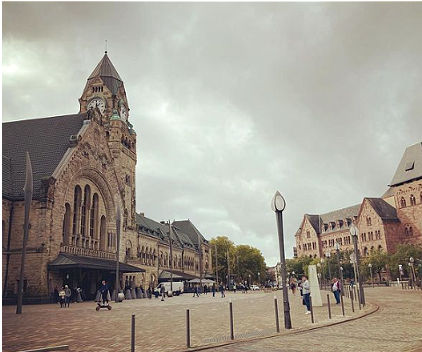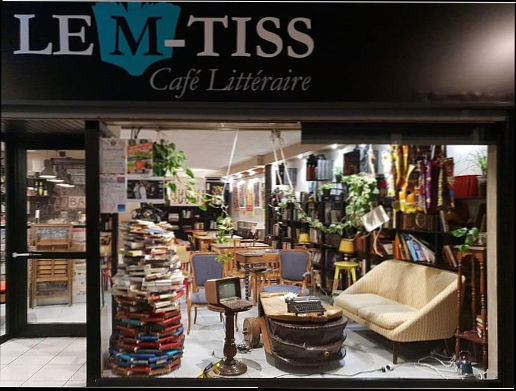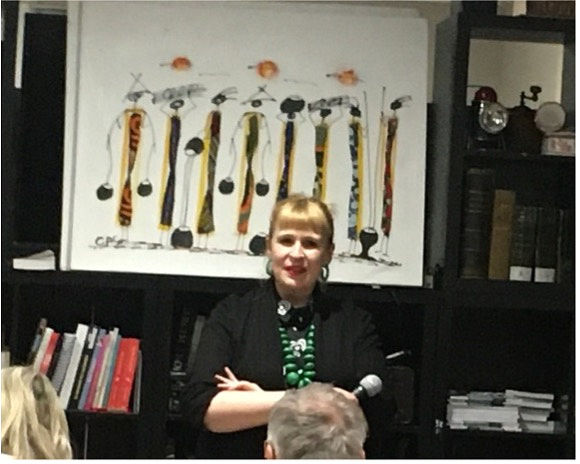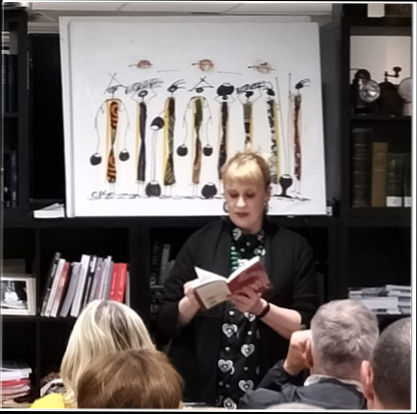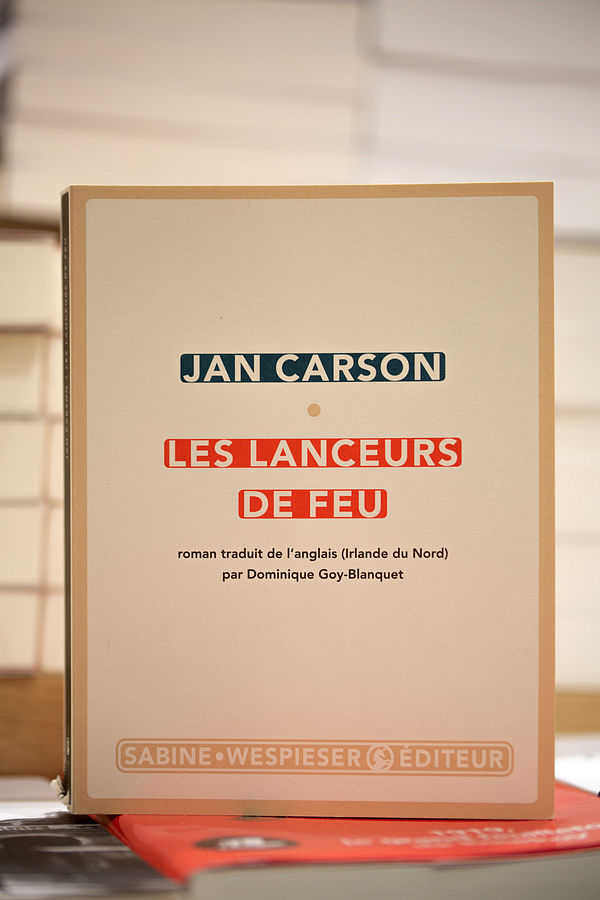Let’s go to the meeting with author Jan Carson!
Her story is an inspirational example of achieving dreams, overcoming obstacles, and working on what you love!
Let’s go!
On 25 October, I travelled to Metz, a lovely city in north-east France, to meet Jan Carson, the author of The Fire Starters and the 2019 European Literature Prize winner for Irish literature. She was invited to France to participate in the ARIEL Project for 4 months where she works with high school students and university students, participates in seminars and lectures. During the event in Metz, she spoke about herself, her background, her life, her work, and her books.
Before meeting her, I had no idea who she was. I had only read a few details on the internet as I travelled for 40 minutes between Nancy and Metz. But one thing caught my attention. She is Irish and I’m very curious about this culture!
Le M-Tiss Literary Cafe
The meeting with the author was held in a lovely literary café, Le M-Tiss, with a warm welcome and a great atmosphere, both friendly and informal. At 7:30 pm the meeting started, and the owner of the café introduced Jan, and she began to speak. She came across as a friendly, funny, and warm person. She engaged wonderfully with the public, especially with Alix, her translator. With Alix, she demonstrated excellent chemistry, resulting in a positive response from the audience who were attentive to his explanations and laughed at his jokes.
A life with restrictions but with dreams
Jan Carson was born in the small town of Ballymena in 1980 in Northern Ireland, during the Troubles - a period in history when religious Protestants and Catholics had a significant influence and separated communities. Northern Ireland only has 10% of lay schools, which means most schools are influenced by a religious ethic.
She comes from a very religiously conservative Protestant family. Her father is a Presbyterian minister. Her childhood was marked by strict rules and religious influences. For example, she was not allowed to go to the cinema, drink, dance, or play cards. Her life was strict, but she wanted to be an artist, and she spent a lot of time writing, which was very brave of her, considering the context.
Religious conflict is not an impediment to writing together
In 1990 and 1998, Jan worked with protestants and Catholics to write and share together.
Then, during the Covid lockdown, she also worked for 2 years with Protestant and Catholic women in meetings every week to encourage them to write together. In the first year, they focused on non-sensitive topics, but common ones, such as food, children, and vacations. She felt a spirit of collaboration between them in this experience. Jan asked them in the second year: “Would you like to write about your experience in the conflict?”. And they said yes! After that, they started to write about very difficult things. Just before the project ended, a woman asked if she could read her poem to the class, a story of her son's death by the IRA. When the woman began to cry, another woman helped her to finish reading the text. This is because she knew how she felt since her husband was also killed in the armed conflict by the Unionist side. And this demonstrates the collaborative work of two women who experienced similar situations but on different “sides”. Their stories and emotions are extremely relevant to Jan, and it touches her deeply.
Magical realism and “Irish style”
For Jan, the history of Northern Ireland is difficult to talk about, and it was also prohibited for a long time, so that’s why she used magical realism like Gabriel Garcia Marquez to "wake up" the people, showing them real life through an imaginary world. With this, she can discuss society, politics, religion, while also exploring "the supernatural world", which we often find in her books.
Jan writes using an Irish and Scottish wording in her books. This can be challenging to understand as some of the vocabulary is very specific to Northern Ireland.
The result of all inspirations: the books!
Jan was inspired by these stories - stories of her childhood and stories of women from different “parts” of the conflict - to write her books. In some of these books, there are some small extracts of these stories.
Jan started writing in 2005 and she published her first story in 2007 in an American store. She only received 3 dollars for it, but this did not discourage her. Her first book was published in 2014, and now she has 7 books published - 2 short stories collections, 2 collections of Postcards stories and 3 novels.
For Jan, her fourth book The Fire Starters is very significant. She said, “It’s a really big book”. In 2019, she won the European literature award for this book. It’s translated into 14 languages, and it has been adapted for television by the BBC, for a series that will come out soon. During her book tour, she said she attended more than 650 events, and jokingly said the book has paid her mortgage.
This book tells the story of two fathers in Belfast who are worried if negative things they’ve done could affect their children, it is about the responsibility of parents for further generations. Jan emphasizes the fact that language can be used rhetorically to talk about politics and religion.
Attention! Spoiler coming!
Her most recent book is entitled The Raptures, and was published in January 2022. It will be translated into French and published in a pocket version in early 2023. In this book, Jan tells a story that happens in North Ireland in 1993 about a disease that affects children.
A potential referendum on the reunification of Ireland may be held in the coming years, and the book The Raptures informs Catholic people about what happens in Protestant churches and their lifestyle, allowing them to understand how people live on the island and to vote responsibly. She believes it's "very important to show this story to young people”, and that's why she wrote this book.
At the end of the meeting, I asked one of the participants at the event about the author and her books. It happened to be a person from Ireland, and she said she loved Jan’s books and deeply respected her for her bravery and her contribution to the understanding of the local differences and religious backgrounds.
I’m truly glad I participated in this great event, which allowed me to discover such a wonderful author. I’m about to start reading all of her books, and I think everyone should do the same! ?
Natalia ARANEDA ALVAREZ, M1 LEA-LECSI
